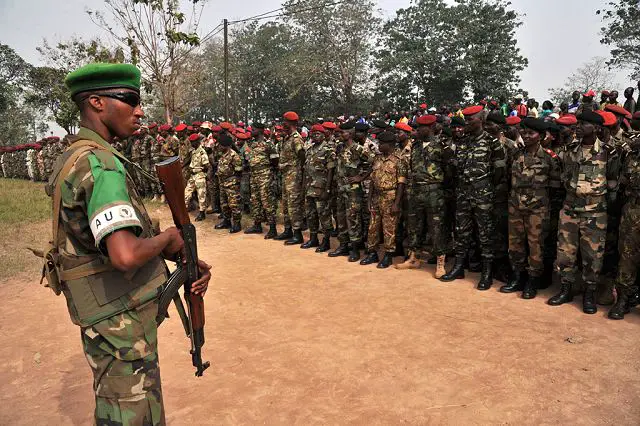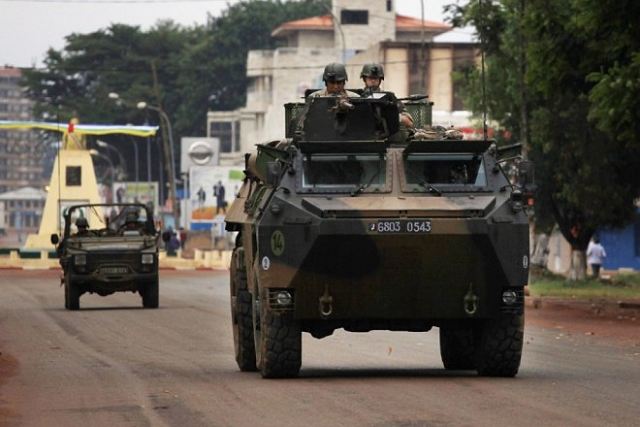Breaking news
UN Secretary-General asks to send 3,000 additional troops to Central African Republic 2102141.
| a | |||
Defence & Security News - Central African Republic |
|||
| Friday, February 21, 2014 08:19 AM | |||
UN
Secretary-General asks to send 3,000 additional troops to Central African
Republic. |
|||
The
UN Secretary-General Ban Ki-moon is expected to report soon to the Security
Council on the outlines of a future UN peacekeeping operation with a robust
mandate to protect civilians and promote stability in CAR (Central African
Republic). However, he noted, the deployment of a peacekeeping operation,
if authorized, will take months. |
|||
 A Rwandan soldier stands guard as members of the Central African Armed Forces (FACA) listen to interim President Catherine Samba Panza's speech on February 5, 2014 |
|||
| |
|||
Therefore, he proposed a six-point initiative to address the greatest risks being faced by the people of CAR, beginning with a call for the rapid reinforcement of the AU and French troops now on the ground with additional deployments of at least 3,000 more troops and police. He
also proposed that all international forces in CAR be brought under a
single coordinated command, and that the mission of these forces be focused
on the most urgent priorities. These include containing the violence,
protecting civilians, preventing further displacements, and creating a
secure environment for the delivery of humanitarian assistance. In addition,
the African troops that join this force should be provided with logistic
and financial support. “The
situation in the country has been on the agenda of the Security Council
for many years now. But today’s emergency is of another, more disturbing
magnitude. It is a calamity with a strong claim on the conscience of humankind,”
said the United Nations chief. “However, given the scale and geographic breadth of the violence, the security requirements far exceed the capabilities of the number of international troops now deployed,” he stated. “In places where there are no international forces, the choice for far too many civilians is to flee or be killed. |
|||
 French troops patrol in armoured vehicle in Bangui, Central African Republic |
|||
Some
few days ago, France has decided to send an 400 additional troops to the
Central African Republic, raising its total deployment to 2,000.
The French military has been working with 5,500 troops from African countries to end more than a year of deadly ethnic and sectarian violence. In January 2014, The European Union took the decision to send 1,000 soldiers to help stabilize Central African Republic. Meeting in Brussels, the ministers approved an outline plan to send a battalion-sized force to the violence-torn country but detailed military plans still need to be worked out. It is not yet clear which countries will provide the troops. EU officials hope the EU force, which will be based around the capital Bangui and its airport, will start arriving in Central African Republic by the end of February. It will stay for up to six months before handing over to an African Union (AU) force that is building up its strength on the ground. EU foreign ministers said the aim was to protect civilians and to create conditions for supplying humanitarian aid. |
|||



















